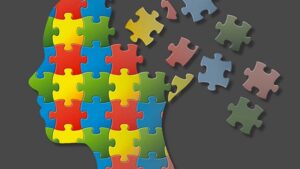Contents
- 1 What Are Psychotropic Medications?
- 2 Common Psychotropic Medications
- 3 Benefits Of Psychotropic Medications
- 4 Side Effects Of Psychotropic Medications
- 5 How To Reduce Risk Of Side Effects?
- 6 What Happens When We Stop Taking Psychotropic Medication?
- 7 Ways To Cope With Mental Health Issues Without Medication
- 8 How Long Does It Take For Psychotropic Medications To Work?
- 9 Alternatives To Psychotropic Medications
- 10 Treatment For Mental Health Issues Symptoms
- 11 When To See A Doctor?
- 12 Conclusion
What Are Psychotropic Medications?
 Psychotropic medications are drugs prescribed for mental disorders. These include depression, ADHD, bipolar disorder, and schizophrenia. They work by changing the levels of neurotransmitters in the brain. However, psychotropic medications have the potential to cause side effects. psychotropic medications- is a term used to describe any psychotropic (i.e., mood-altering) chemical that acts on the central nervous system (CNS) such as antidepressants, anxiolytics, antipsychotics, stimulants, and hallucinogens.
Psychotropic medications are drugs prescribed for mental disorders. These include depression, ADHD, bipolar disorder, and schizophrenia. They work by changing the levels of neurotransmitters in the brain. However, psychotropic medications have the potential to cause side effects. psychotropic medications- is a term used to describe any psychotropic (i.e., mood-altering) chemical that acts on the central nervous system (CNS) such as antidepressants, anxiolytics, antipsychotics, stimulants, and hallucinogens.
Common Psychotropic Medications
A list of the most common psychotropic medications are as follows:
Antidepressants
Common brand names include Prozac, Zoloft, Celexa, Paxil, Lexapro North Star Nutritionals Mood Plus St. John’s Wort Vitamin B Complex 5-HTP Tryptophan Valerian Root GABA Calcium and Magnesium Xanax Klonopin Restoril Ambien Lunesta GHB
Antipsychotics
Common brand names include Zyprexa, Seroquel, Risperdal, Abilify Geodon Thorazine Haldol Prolixin Moban Navane Mellaril Clozaril Clozapine Fanapt Invega Sustenna Orap
Anti-anxiety medications
Common brand names include Valium, Librium, Xanax, Ativan Klonopin Restoril Ambien Lunesta GHB
Stimulants
Common brand names include Ritalin, Adderall, Dexedrine, Concerta, Focalin Vyvanse Straterra Trazodone (Desyrel) Wellbutrin SR Desoxyn Methylin Methadose
Mood stabilizers
Common brand names include lithium, Depakote, Lamictal, Trileptal Tegretol Eskalith Lithobid Topamax
Bipolar Disorder
Common brand names include Lithium, Depakote, Lamictal, Trileptal Tegretol Eskalith Lithobid Topamax Tegretol XR
Benefits Of Psychotropic Medications

Psychotropic medication can reduce or eliminate symptoms and improve daily functioning for people dealing with mental disorders by changing brain chemistry and neurotransmitters. It also increases the likelihood that a person will continue treatment if it is effective in reducing or eliminating symptoms.
The main benefits of psychotropic medications are-
- Reducing or eliminating symptoms
- Helping with daily living
Societal Benefits Of Psychotropic Medications
The use of psychotropic medications has become widespread in the United States. Today they are one of the most commonly prescribed drugs for adults, teenagers, and children with mental disorders.
According to a report by IMS Health (IMS), it is expected that ADHD medication sales will increase by 22 percent between 2012 and 2017. If this trend continues, the sales will reach $17 billion in 2017. Sales for antipsychotics are predicted to increase by 14 percent during the same period, which is expected to generate revenue of $18.5 billion in 2017.
The use of psychotropic medications has also increased among children and teenagers with mental disorders. Between 2002 and 2011, the use of these drugs has doubled among teenagers. According to a report by IMS Health (IMS), antipsychotics are one of the most commonly used psychotropic medications among children 4-17 years old. From 2005 to 2009, medication usage increased from 2.8 percent to 3.7 percent among children aged 4-17. This is an increase of one-third.
These medications are also commonly prescribed to help patients recover from other conditions, like surgery or cancer treatment. According to the U.S. National Institutes of Health (NIH) and the Centers for Disease Control (CDC), prescription painkillers are responsible for about 22,134 deaths per year in the U.S. The NIH and the CDC both encourage the use of non-narcotic medications to manage chronic pain.
Side Effects Of Psychotropic Medications
Many people develop side effects while taking medications like antidepressants and antipsychotic pills. However, some people actually begin self-medicating because they aren’t aware that what they’re experiencing is a side effect. The more familiar side effects of antidepressant and antipsychotic medications include nausea, vomiting, loss of appetite, diarrhea, weight gain or loss, irritability, and restlessness.
The most common side effects of psychotropic medication, besides addiction to the drug being taken, are nausea and vomiting. However, some people experience more serious side effects including dizziness, blurred vision, or even hallucinations if they take antipsychotics. Antidepressants often cause weight gain, but occasionally they can cause weight loss. In addition, antidepressants can increase feelings of restlessness or agitation.

- Drowsiness, dizziness, blurred vision
- Confusion
- Agitation or restlessness
- Nausea or vomiting
- Constipation or diarrhea
- Dry mouth, loss of appetite, weight gain, or loss
- Blurred vision
- Seizures
- Tremor, muscle cramps, spasms
- Uncontrollable shaking of a part of the body
- Sexual dysfunction or loss of interest in sex
- Ejaculation problems in men
- Urinary retention or difficulty urinating.
How To Reduce Risk Of Side Effects?
First of all, it’s important to be aware that psychotropic medications tend to require long-term use or they may stop working altogether. The length of time varies depending on the person, but most people take prescription drugs indefinitely. For this reason, it’s important to find a therapist or coach who can help you learn how to manage symptoms between medications and reduce the risk of relapse.
It is recommended that people call their doctor immediately if they experience any severe or unusual side-effects from psychotropic medication. However, it’s important to know that many side effects will go away on their own and the best course of action is typically determined by a doctor.
What Happens When We Stop Taking Psychotropic Medication?

Generally speaking, your brain returns to normal within a few weeks after stopping taking an antidepressant or antipsychotic medication. However, if someone has been taking these medications for a long time or at high doses, it may take longer. Taking antidepressants or antipsychotics during pregnancy can also cause lasting changes in the brain chemistry of an unborn child.
Some people aren’t aware that stopping taking antidepressants or antipsychotic medications abruptly can be dangerous. Someone may feel better for a few weeks, but then experience withdrawal symptoms because they have not tapered their dose gradually.
The main disadvantages of psychotropic medications- Although psychotropic medication has many advantages, it can cause several mental and physical side effects. The risks increase if they are not taken as prescribed or used for an extended period of time.
Ways To Cope With Mental Health Issues Without Medication
People who need psychotropic medications may also want to try other strategies before starting medication. This is because there can be side effects with these drugs and many people prefer to not take medication if it’s unnecessary. Some ways that people cope without medications include-
- Talking to a counselor or therapist
- Practicing self-care like yoga
- Exercise
- Meditation
- Spending time in nature
- Using essential oils for relaxation
- Engaging in activities they enjoy
How Long Does It Take For Psychotropic Medications To Work?
It can take several days to weeks for a medication to reach its maximum effect. However, it is necessary to be patient with the process and not give up after a few weeks if the medication is not working.
It’s important to consult your doctor before stopping any prescription drug, including psychotropic medications. However, it is usually safe to slowly reduce the amount of medication over time until they are no longer taken. Sometimes, a doctor may recommend changing to another medication or using different combinations of drugs to make the process easier.
It can take up to several weeks for medication in the bloodstream to significantly decrease after stopping treatment. The amount of time it takes for any drug to be eliminated from the body is dependent on the volume of intake and the half-life.
Alternatives To Psychotropic Medications

If you do not want to take psychotropic medication, you could try any of the following: talking therapies like cognitive behavioral therapy (CBT) or dialectical behavior therapy (DBT), exercise, spending time in nature, practicing mindfulness, or utilizing relaxation techniques.
Behavioral therapy– which can help people learn new skills and behaviors that relate to their condition.
Cognitive-behavioral therapy– which works by identifying and changing thoughts and feelings that lead to problematic behavior.
Environmental modification– is when there is a change in the environment around a person with depression in order to make them feel better (e.g., adding indoor plants).
Exposure therapy– is when a person with phobias or PTSD is gradually exposed to what they are scared of.
Support groups– which allows people to meet other individuals who have similar conditions.
Over-the-counter treatments– which help reduce symptoms like stress and anxiety by taking natural supplements like melatonin.
Herbal supplements– which are often derived from natural plants and are thought to have calming effects on the body.
Psychoeducation– is when people learn about mental health conditions in order to better understand their illness.
Psychiatric rehabilitation– which helps individuals go back to work, school, or home life after living with a mental illness for a period of time,
Dietary changes– such as reducing caffeine and alcohol intake.
There are many people who choose not to take psychotropic medication because they believe the symptoms they are experiencing aren’t severe enough for this type of treatment. Others may refuse psychiatric medication because of past experiences with antidepressants. It is important for patients to be aware of the potential side effects and ensure that they are comfortable with these before starting a medication. There are other ways to treat mental health conditions and they vary depending on the circumstances and severity of symptoms. These include:
Are Psychotropic Medications Addictive?
Some medications for mental health disorders are not addictive, but others may be. It is important to pay attention to whether or not a doctor prescribes you an antidepressant that might have effects of addiction. In order to avoid addiction to these drugs. It’s important to work with them when tapering off the medication.
Treatment For Mental Health Issues Symptoms

It’s important not to ignore your feelings or pretend they aren’t happening because you think other people would judge you. It can help to talk to someone you trust about what’s going on and what you’re feeling, such as a friend or family member. Sometimes, though, it’s difficult to open up to those we know and love because we worry they’ll judge us harshly or not be supportive (which isn’t usually the case). If this is true for you, or even if it isn’t, it can be helpful to reach out to someone who’s not part of your everyday life.
The best thing to do if you’re feeling suicidal, anxious, or depressed is to talk to a mental health professional. They can help you come up with coping strategies and identify the root cause of your symptoms. If it’s not an emergency situation, then make an appointment soon.
Most importantly, remember that there is no one-size-fits-all approach when it comes to mental health treatment. The right course of action depends on how you’re feeling in the moment. Psychotropic medication can be a helpful step to take, but you should never self-medicate or ignore your feelings because the medication isn’t the only option available to you.
When To See A Doctor?
It can be helpful to talk to a doctor about psychotropic medications if you are feeling suicidal, very anxious, or depressed. If it’s not an emergency issue but still urgent enough that you want to discuss this with a professional, then it’s wise to schedule an appointment soon. The longer you wait, the more likely it is that your symptoms will get worse. Furthermore, untreated mental illnesses can worsen and affect other areas of life.
Psychotropic medications can have negative side effects, especially when used improperly. The FDA requires drug manufacturers for prescription drugs to release information about possible side effects. That can harm the patient or cause side effects while taking their medication. However, the information that they give could be incomplete or inaccurate about the drug. For that reason, a person should discuss all questions and concerns with a doctor or pharmacist to ensure safety.
Conclusion
Psychotropic medications help treat a variety of mental health disorders. Doctors usually prescribe these medicines or patients take them on their own. But it’s important for you to know the risks associated with any type of medication before starting treatment. It is also essential that you talk about psychotropic medications with your doctor if they are something you would like to try. This article has provided some information on what different types of drugs are out there and how they work in our bodies. If you have any other doubts about these medications. Please reach out to us and connect to our healthcare experts.
If you are looking for affordable Online Counseling MantraCare can help: Book a trial therapy session


